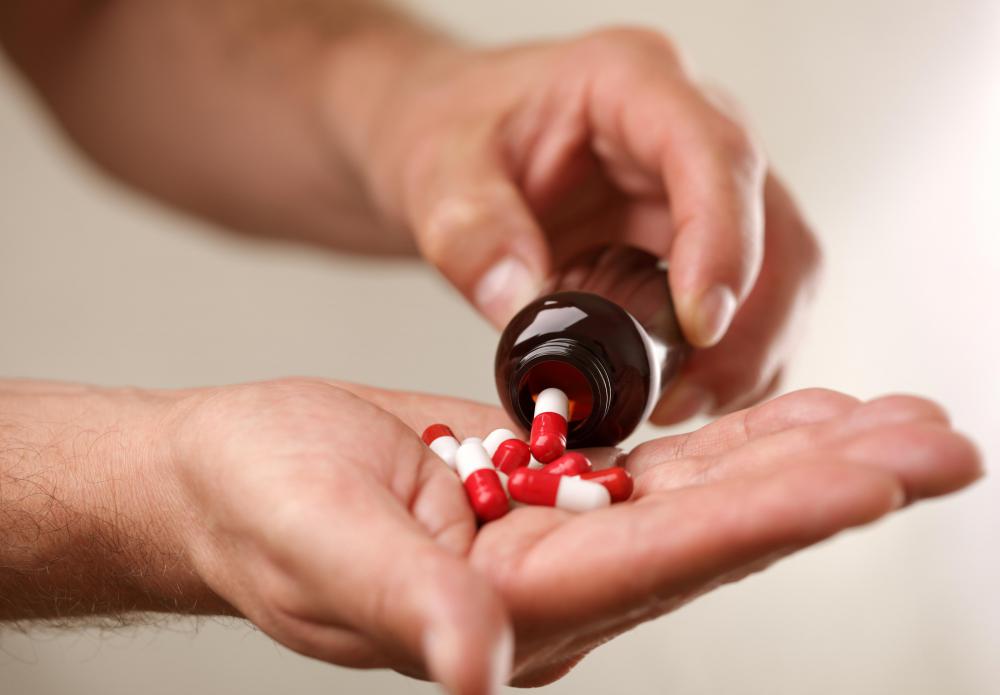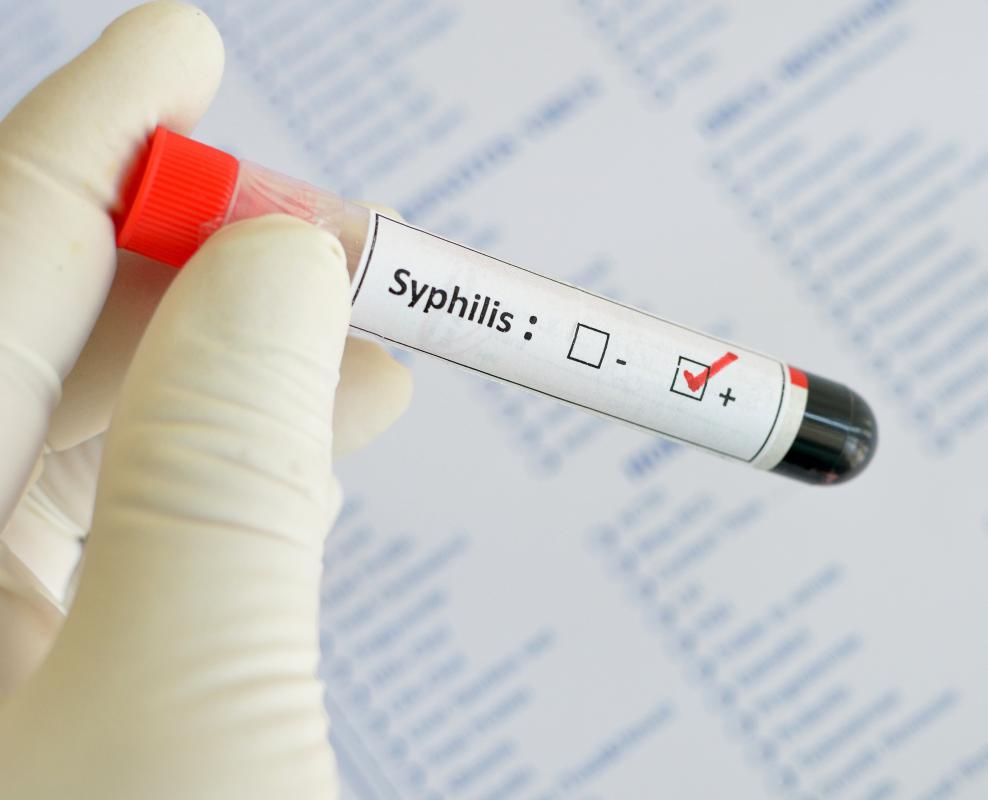At TheHealthBoard, we're committed to delivering accurate, trustworthy information. Our expert-authored content is rigorously fact-checked and sourced from credible authorities. Discover how we uphold the highest standards in providing you with reliable knowledge.
What is Oral Syphilis?
Syphilis is a sexually transmitted disease that presents itself with symptoms such as a sores, fever, weight loss and tiredness. Syphilis can be spread via oral, vaginal, and anal sex. When the disease is transmitted through oral-genital contact, it can manifest symptoms on the lips, gums, and tongue. It is not common to give or receive oral syphilis, and the symptoms can be mistaken for other illnesses. Untreated syphilis can result in dangerous complications, including organ damage and death, and it is critical that any individuals suspicious of oral or traditional syphilis seek the advice of a health care professional.
The first stage of syphilis is characterized by an open sore known as a chancre. In oral syphilis the sore is located in the mouth—most commonly on the lip, and occasionally on the tongue. Although syphilis chancres are often painless and easy to overlook, the chancres can be painful and ulcerated. The sore is most likely to appear approximately three weeks after exposure, and will heal without treatment. Left untreated, oral syphilis will likely progress from stage one to stage two at this point.

Lesions and erosions in the mouth are commonly reported during the secondary stage of oral syphilis. There might also be headaches or a fever, and a rash that forms around the mouth. The reddish sores can spread around the face and scalp, and severe cases can result in permanent scarring and disfigurement from the facial lesions. Abnormal hair loss, swollen glands, and weight loss might also be observed.

When syphilis remains untreated, it progresses from the second stage to the latent stage, where symptoms disappear while the disease remains inside the body. From this point the infection can continue on to the late stage. The late stage of oral syphilis can lead to devastating complications such as organ damage, mental illness, blindness, and paralysis. Late stage syphilis can also result in death. For this reason, it is imperative that a person exposed to the disease, or engaging in behaviors that leave him or her at risk, be tested by a medical professional.

Treatment of oral syphilis in the early stages is generally simple and straightforward. The disease is caused by a bacteria and can be cured by antibiotics. The length of antibiotic therapy and the amount of prescribed drug will vary depending on the stage of the disease. If the infection has progressed to late stage, deterioration of the organs and body cannot be reversed. Treatment will prohibit the disease from causing further damage.
AS FEATURED ON:
AS FEATURED ON:














Discussion Comments
@burcidi-- Syphilis is highly infectious in the primary stage, which starts three weeks after infection with the syphilis bacteria. During this time though, the person will almost always develop a single chancre in that area.
In the case of oral syphilis, the person will have a chancre in the mouth. This is when the chances of infecting a partner during oral sex is the highest.
Unfortunately, people don't always notice the chancre because it doesn't cause any pain. So it is possible that the person wasn't aware of the chancre even though it was there. You can check oral syphilis pictures online for images of chancres if you're not sure what to look for.
The best thing to do is get to get a syphilis serology test four weeks after potential exposure to syphilis to know if there is a syphilis infection or not.
Is oral syphilis infectious during all stages or just in the beginning? And what if the person doesn't show any syphilis signs and symptoms but carries the bacteria?
What I mean is, if someone possibly has syphilis, but no visible chancres or other lesions, can they still infect their partner during oral sex?
And what happens if during the time of oral sex, the person was on antibiotics? Will antibiotics prevent the infection from being spread to the other person?
Oral syphilis is becoming a much more widespread issue than syphilis spread through intercourse in the U.S.
There was an article in the newspaper about a study that was done about Chicago. Chicago apparently has the highest cases of syphilis in the country. In the past, most of syphilis patients were heterosexuals but recently, it has changed. Most syphilis infections are reported to be among homosexual men now and oral sex seems to be the culprit.
They basically interviewed many of the homosexual men with syphilis and found out that their only risk behavior during this time was oral sex!
I think some new campaigns to fight STDs and syphilis among the homosexual population have already started in Chicago. But we should probably extend these campaigns to high schools and colleges too. I know that many young adults are not aware that oral sex carries similar risks as regular intercourse.
Post your comments